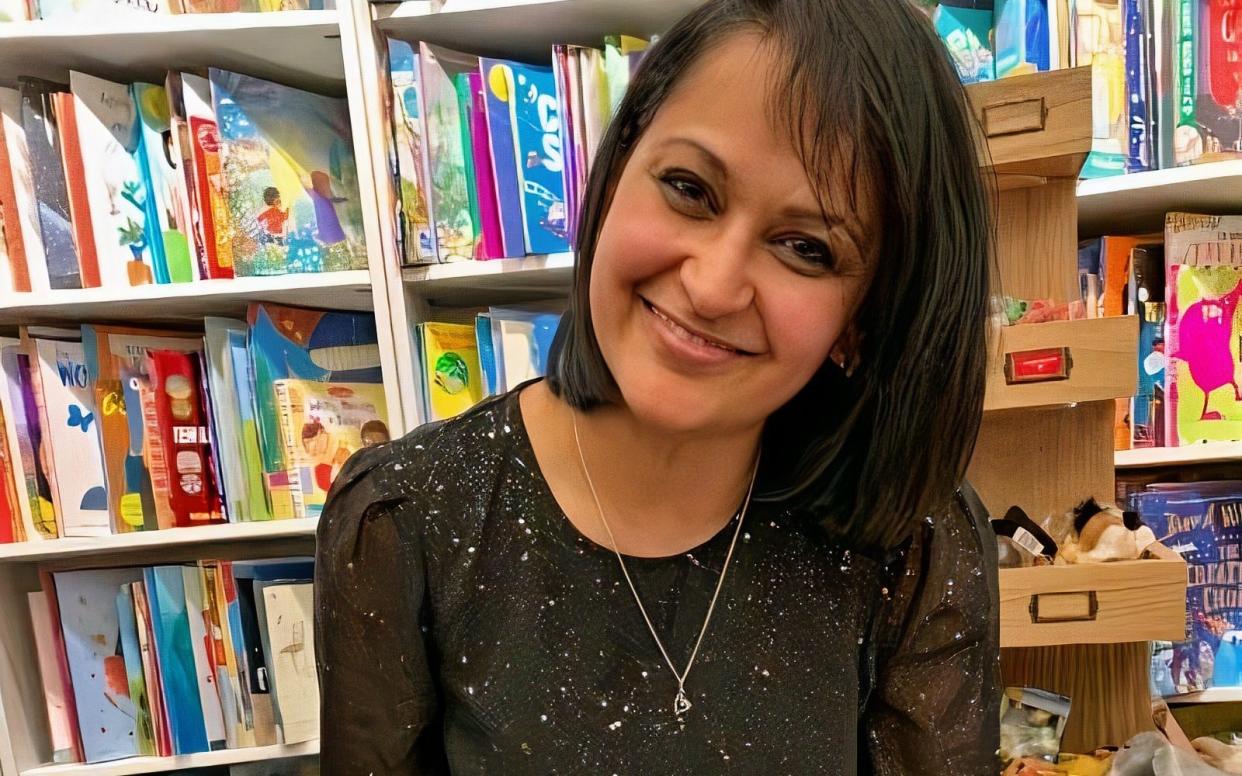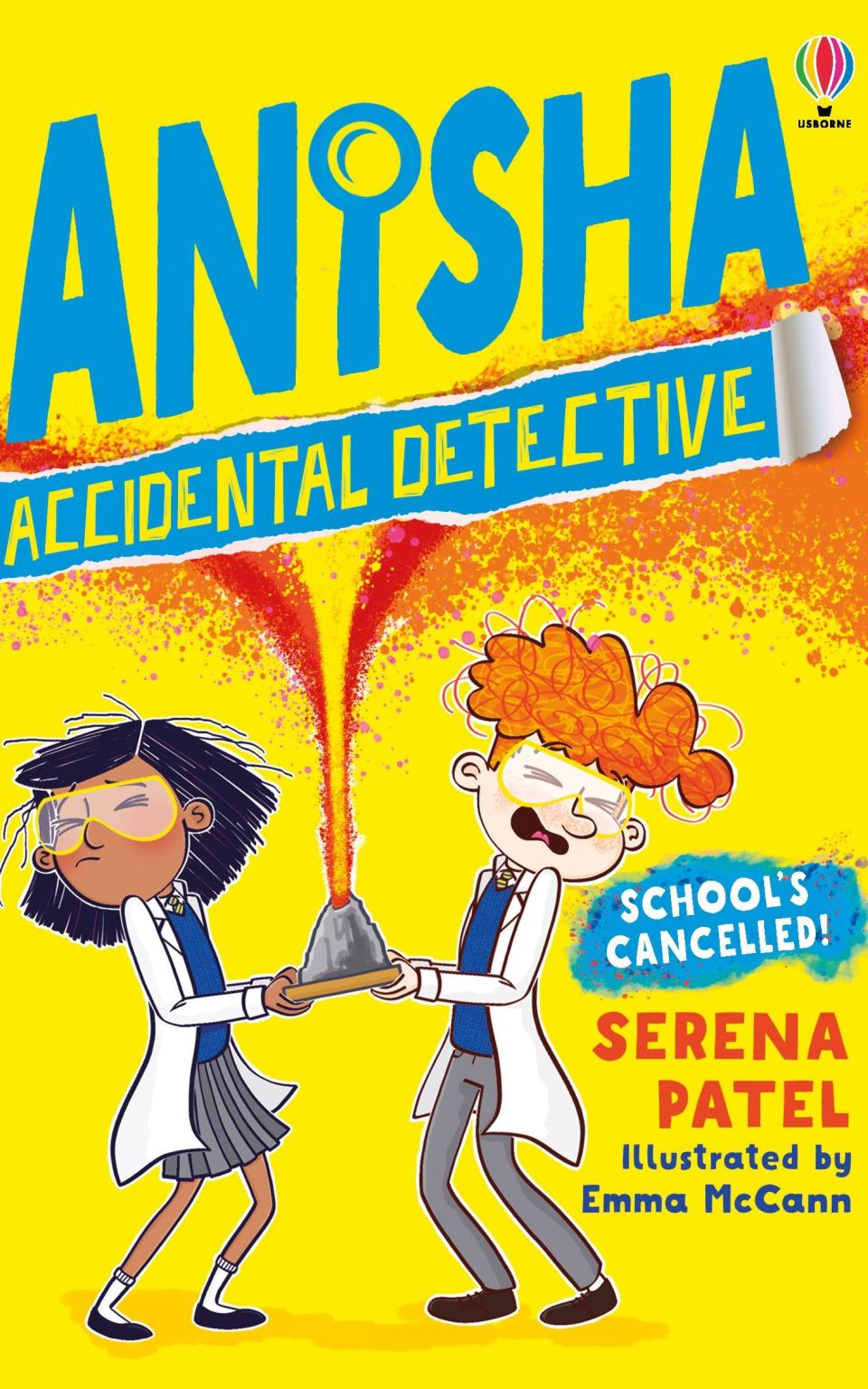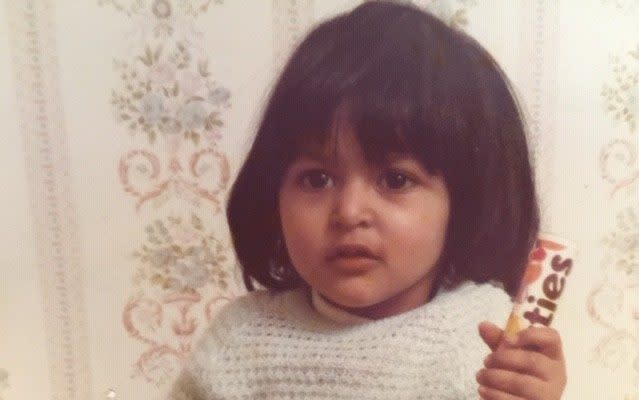Serena Patel interview: 'There were no authors that looked like me'

“If your story doesn’t exist out there, if there is nothing you read as a child that reflects your day to day experience, then it almost feels as though you don’t exist,” says the author Serena Patel. “It makes you feel you aren’t validated as a person.”
Patel knows whereof she speaks. A child of Indian heritage who grew up in Walsall in the Eighties, she lived on a diet of Lewis Carroll, Roald Dahl and CS Lewis. Even today, only 4 per cent of children’s books feature a character from a minority ethnic background, despite the fact that almost a third of school-age children in the UK belong to such families.
But Patel is doing something to redress the balance. Inspired by becoming a mother herself to a son and daughter now aged seven and eight, Patel, 41, has started her own series for children, Anisha: Accidental Detective, featuring a 10 year old girl from a mixed Punjabi and Gujarat background who adores science and sometimes prefers numbers to people, partly because she finds her family excruciatingly embarrassing.
She lives with her toothless, formidable granny, her emotionally distant lawyer dad and her somewhat away-with-the-fairies mother, and turns reluctant detective when her Aunty Bindi’s fiance Tony goes missing and a ransom note is delivered. Chaos ensues, in a boisterous comedy that nods to the ebullient style of Lauren Child, but also immerses the reader in the generous bustle of a large Indian family as they manically prepare for a wedding.
“If you are an author of colour, people expect you to write a hard-hitting book about serious issues, but humour is a much better means of getting messages across,” says Patel. “I didn’t want my book to be only about Anisha’s culture. I wanted it to do the double-edged job of being both a mirror and a window. I wanted it to be about a British Indian girl who is the heroine in her own story, but also be accessible to all children.”
She certainly achieved the latter in my household – my six-year-old daughter, desperate at the start of lockdown for a story about a female detective, absolutely loved it. The second in the series, School’s Cancelled, is out early next month.

Patel never planned to be a writer. “It never occurred to me that I could, because there were no authors I could see that looked like me,” she says. “Authors were white, upper middle class, and lived far away, in parts of London we’d never heard of. Such a person could never be you. It felt impossible to reach.” Instead, she indulged her passion for stories during weekly visits to the library with her younger twin siblings and her mother, who worked as a dinner lady and in a factory before moving into management.
There were few books in the actual house – they were only bought on birthdays and at Christmas – but the young Patel became more bookish, the more complicated her life became. First, her parents divorced when she was seven, making her feel isolated among her group of friends, all of whose parents were still together. And then, she moved to a new school where she was bullied (“I was a gawky, awkward child”) and suffered racism.
“I was always aware there was this hatred of us because of the colour of our skin but I didn’t really understand it beyond that. There was a lot of graffiti. I have a vivid memory of walking towards home and having the P word shouted at me across the road and thinking: ‘Just keep your head down and keep walking’. I would have been about ten.”
On top of all this was the issue of her mixed Indian heritage. Her mother is Gujarat and her father Punjabi and although Patel spent her first seven years speaking Punjabi, after her father left she began learning Gujarati instead. Yet the switch prompted an identity crisis. “I felt embarrassed to speak Gujarati, as though I wasn’t a real Gujarati and people would know instantly that I wasn’t speaking it properly,” she says. “But I also lost my fluency in Punjabi so I didn’t feel I was that either. It was hard to explain to other people. In those days Indian was just Indian.”
Divorce among Asian families back then was also rare, and, “a source of shame,” she says. “It was something you didn’t talk about. No one means for it to happen, but those feelings of shame do transfer to the children.” Eventually Patel dropped out of her A Levels (“I’d chosen biology and chemistry but had no real plan”) and moved to London, where she embarked on a Camden Council-run training scheme and met some inspirational women who “proved to me I did matter after all”. She moved back to Birmingham and some years later got married. She now works in a law office.

The writing began when her son was one. Frustrated that there were no children’s books that reflected the lives of asian families, she attended a writer’s festival, started entering short story competitions and then, in 2017, was accepted on to a Foundation course run by the Golden Egg Academy, an organisation that aims to help aspiring authors. The character of Anisha started to take shape and then, halfway through the year, she spotted a competition online - Undiscovered Voices - run by the Society of Children’s Book Writers and Illustrators. “Twelve winners would have their extracts included in a special anthology,” she says. “I didn’t think I had any hope of winning and promptly forgot about it. But then, that November, I got a phone call to say I was one of the 12.”
On the back of that success, she landed an agent and, after a four-way auction, signed a three-book deal with Usborne. “It is so much more than I could ever have dreamed of,” she says. Patel thinks the publishing industry is becoming more representative, pointing to diversity initiatives such as BookTrust Represents and Megaphone, and to the fact her editor at Usborne is of mixed Indian heritage. Yet the pace of change is agonisingly slow.
What does she think of David Walliams, who dominates the children’s market but whose bestsellers have been criticised for promoting social and racial stereotypes? “It’s hard because clearly the publishing houses are backing him and these books have a massive presence in book shops, but the best you can do is write books that counteract those stereotypes and provide an alternative,” she says.
“And there is a wave of authors of colour coming through: my daughter adores the Agent Zaiba books by Annabelle Sami, for instance. When I first wrote Anisha I didn’t think anyone would identify with her: that’s how deep my sense of alienation was. But publishing is a business, and every interaction I get is proof there is a huge market out there for stories such as hers.”
Anisha, Accidental Detective: Schools Cancelled (Usborne, £5.99) will be published on Sept 3

